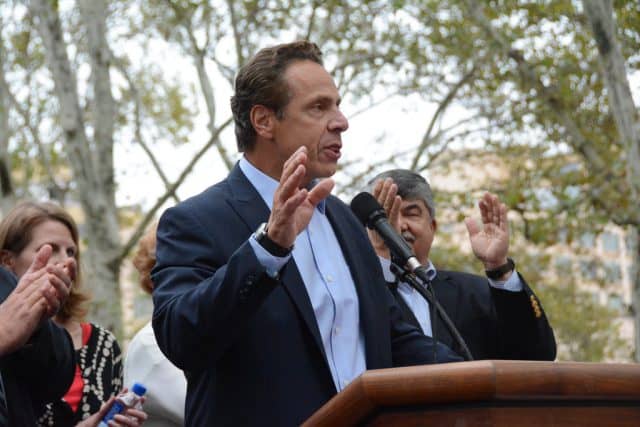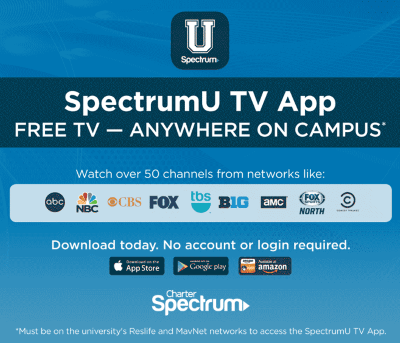 Charter Communications has been quietly testing a streaming video lineup of services on selected college campuses in its service area — so quiet very few students know or care about the service.
Charter Communications has been quietly testing a streaming video lineup of services on selected college campuses in its service area — so quiet very few students know or care about the service.
In Rochester, N.Y., Charter this year introduced SpectrumU at two suburban colleges – St. John Fisher and Nazareth College. The 50+ channel service at St. John Fisher includes five local network stations, but not the low-powered MyNetworkTV or secondary CW affiliate that are found on the traditional local cable lineup. According to Nazareth’s channel list, SpectrumU at the college comes from Spectrum Enterprise’s Fiber Connect service and lists six network affiliates on the lineup imported from Buffalo, a city 70 miles away. The service is accessible around each campus on the schools’ Wi-Fi networks.
Charter wants participating colleges to set aside a 1Gbps connection to manage Wi-Fi streaming for every 5,000 students on campus. Stop the Cap! found anecdotal evidence Charter may be dramatically overestimating how many students actually use the service. A recent visit to both campuses and guest participation in online college forums found almost zero interest in SpectrumU at either college. Students, it seems, have mostly moved on from linear, live television and do much of their viewing on-demand from other streaming services and apps.
Charter Communications kept publicity and expectations low for the service, setting the monthly subscription price for SpectrumU at $0.00. No password or authentication is required to use the service, and logging into the campus network is simple at schools like Nazareth, where the Wi-Fi password GoldenFlyers was easy to come by on and off campus. While driving around, we could easily access SpectrumU from Wi-Fi on streets surrounding St. John Fisher, although Nazareth’s wireless network was tougher to reach on a tree-lined campus set further back from the main road.
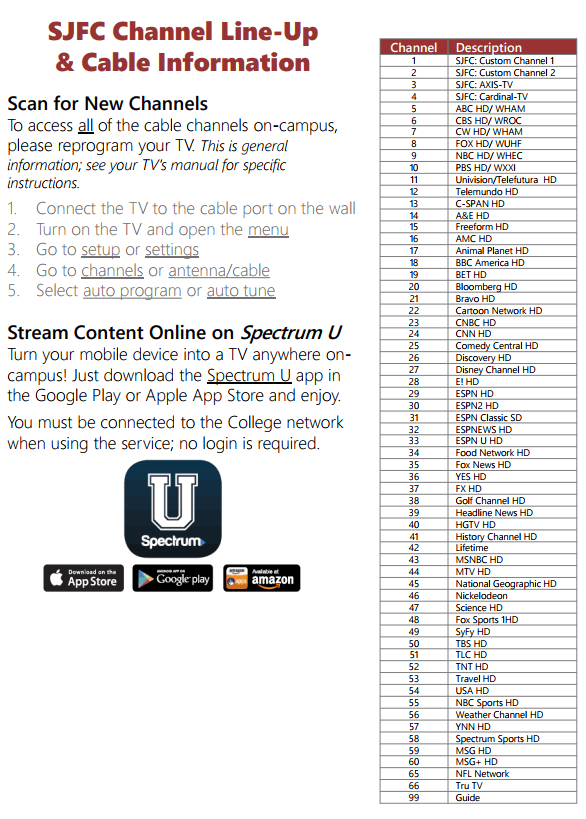
Television services at St. John Fisher College, located near Rochester, N.Y.
Charter dictates the terms and availability of the service, which requires participating schools to subscribe to Charter Spectrum’s Enterprise Fiber Connect service, which supports campus internet and video services. Schools must offer:
- Charter Clear QAM or fiber video services
- Charter fiber internet services (preferred)
- 1Gbps dedicated bandwidth per 5,000 students (~500 concurrent users) recommended
- Wi-Fi network utilizes WPA or WPA2 encryption
- Public IP addresses/ranges for whitelisting
- PAT IPs are supported
- IP requirements: IPv4: /24 – IPv6: /48
- AP’s consistent with current fifth generation Wi-Fi technology, 802.11ac (no older than fourth generation 802.11n)
SpectrumU is designed to work exclusively over Wi-Fi, and only with portable smartphones and tablets:
- iPhone, iPad, or iPod touch running iOS 8 or above
- All major Android smartphones and tablets running Android 4.2 or above
- Kindle Fire Phone, all Kindle Fire models except for the 1st generation model
 There is no support for streaming set-top boxes like Roku or Apple TV and SpectrumU works differently from the QAM cable TV service available in many dorm rooms. Casting isn’t supported either. The Android version of the app only attracted 69 mixed reviews as of the date of this article.
There is no support for streaming set-top boxes like Roku or Apple TV and SpectrumU works differently from the QAM cable TV service available in many dorm rooms. Casting isn’t supported either. The Android version of the app only attracted 69 mixed reviews as of the date of this article.
Charter seems convinced SpectrumU will soon replace traditional internet video streaming, telling campus managers that the service will have “minimal impact if the school’s internet service is robust today, as SpectrumU usage will replace usage of other streaming apps.”
Students doubt it.
“I have never heard of SpectrumU and don’t care,” said Cody, a student we ran into in the parking lot at Nazareth. “I have Amazon Prime and Netflix and I’m good with that.”

Hobart and William Smith Colleges in Geneva, N.Y., are also an early adopter of SpectrumU.
Zephyr, a freshman at St. John Fisher who lives on campus said she doesn’t know anything about the service either, although a roommate in her friend’s dorm room brought their QAM-equipped television to school and can watch the campus TV lineup on it.
“Her boyfriend is a Buffalo Bills fan so he watches the games on her TV, but we really don’t watch it ourselves,” she told us. “Everyone has their own phone or tablet and most people are sharing passwords from home to watch HBO, Hulu, or Amazon stuff.”
Dylan’s password trading brings him access to Hulu, Amazon, Netflix, CBS, and Sling TV. Even with SpectrumU available for free with no password required, he doesn’t care, preferring to watch on-demand content on his tablet or the PlayStation he brought to school.
“I don’t know anyone who watches Spectrum TV and their company sucks anyway,” said Dylan. “I hate ads and I pretty much only binge watch stuff now, so this is useless for me.”
A few students told us they did bring televisions to campus to watch live television, but many just use an antenna. Nazareth and St. John Fisher are only a short distance from Pinnacle Hill, the location for most Rochester television transmitters, and reception is easy.
“Televisions are what our parents watch,” Serena at Nazareth told us. “I don’t know anyone my age with cable.”
Stop the Cap! tested the Android version of the app at both colleges. It reminds us of Spectrum’s streaming TV app, only less capable. The app does not support DVR-type recording, pause and rewind, or on-demand services — things college students would probably look for the most. We experienced occasional buffering watching CNN in a parking lot, but note Wi-Fi signal strength was not ideal. We also found, despite warnings in student handbooks, a number of student-run hotspots and wireless access points. At one dorm at St. John Fisher, we found over 60 Wi-Fi signals competing with the college’s own wireless network.
Cable companies believe by offering cable services to college students, they will get hooked on those services and subscribe after they leave college. But evidence suggests those under 30 are increasingly unlikely to pay for a cable television subscription and are dubbed “cable-nevers” for having no interest in subscription television. They are, however, avid users of streaming services like Netflix and Hulu.
 Countless legacy Charter Communications customers in communities that have been served by the company long before it acquired Time Warner Cable and Bright House Networks spent much of Sunday without service due to a software or firmware failure with one or more of their backbone routers.
Countless legacy Charter Communications customers in communities that have been served by the company long before it acquired Time Warner Cable and Bright House Networks spent much of Sunday without service due to a software or firmware failure with one or more of their backbone routers.

 Subscribe
Subscribe Charter Communications has been quietly testing a streaming video lineup of services on selected college campuses in its service area — so quiet very few students know or care about the service.
Charter Communications has been quietly testing a streaming video lineup of services on selected college campuses in its service area — so quiet very few students know or care about the service.
 There is no support for streaming set-top boxes like Roku or Apple TV and SpectrumU works differently from the QAM cable TV service available in many dorm rooms. Casting isn’t supported either. The Android version of the app only attracted 69 mixed reviews as of the date of this article.
There is no support for streaming set-top boxes like Roku or Apple TV and SpectrumU works differently from the QAM cable TV service available in many dorm rooms. Casting isn’t supported either. The Android version of the app only attracted 69 mixed reviews as of the date of this article.
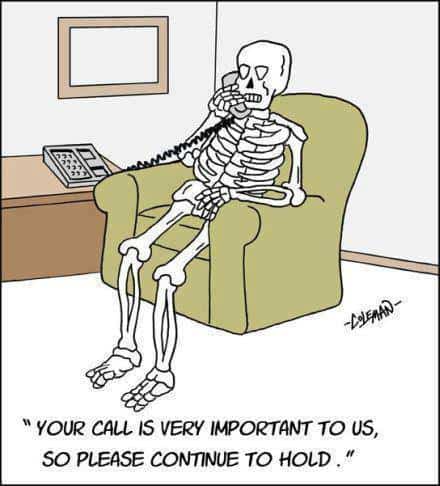 Charter’s Spectrum customers will be waiting a long time for service credit if their cable service has been out as a result of the recent hurricanes in Texas and Florida.
Charter’s Spectrum customers will be waiting a long time for service credit if their cable service has been out as a result of the recent hurricanes in Texas and Florida.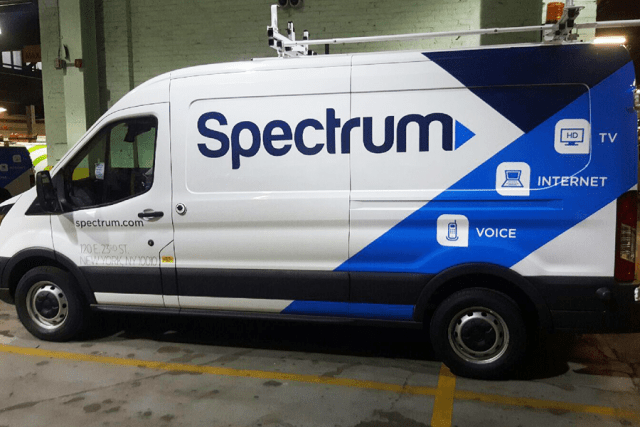
 Even as millions of Spectrum subscribers began paying higher rates for programming and equipment this month, Charter Communications has sweetened the deal for its new customers by offering free DVR service with their triple play bundle of TV Select, internet, and voice service for $89.97/mo during the first year. The cable company will also
Even as millions of Spectrum subscribers began paying higher rates for programming and equipment this month, Charter Communications has sweetened the deal for its new customers by offering free DVR service with their triple play bundle of TV Select, internet, and voice service for $89.97/mo during the first year. The cable company will also  Charter insists customers who have had Spectrum Video service within the last 30 days cannot qualify for this rebate. This is an effort to close a loophole where an existing Spectrum customer cancels their regularly-priced cable service, switches to a competitor for a few weeks, and then promptly switches back to a Spectrum package at the new customer price, which also leaves Charter on the hook for paying the early termination fee charged by the other company. To avoid this, a customer would have to cancel Spectrum service, switch to a competitor for at least 31 days, and then switch back to Spectrum. That is likely to be a hassle for most people.
Charter insists customers who have had Spectrum Video service within the last 30 days cannot qualify for this rebate. This is an effort to close a loophole where an existing Spectrum customer cancels their regularly-priced cable service, switches to a competitor for a few weeks, and then promptly switches back to a Spectrum package at the new customer price, which also leaves Charter on the hook for paying the early termination fee charged by the other company. To avoid this, a customer would have to cancel Spectrum service, switch to a competitor for at least 31 days, and then switch back to Spectrum. That is likely to be a hassle for most people.